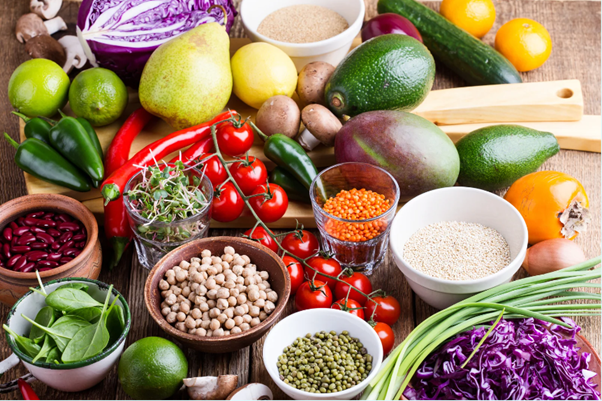In recent years there has been a huge increase in conversations on the topic of gut health. Phrases such as “gut microbiome” “ultra processed foods” “probiotics” “prebiotics” “leaky gut” are now common terms; but what do they really mean and do they apply to us?
Gut Health
"What do we really mean when we we talk about gut health?"
So what exactly is our “gut”?
Our gut, or rather digestive tract, is not limited to just our stomach. It actually starts at the mouth and ends at (well need we say more!). It’s a system of connected hollow tubes that allow food to travel from our mouths, through our body and ultimately to filter out and eliminate all the waste.
What is our gut microbiome?
Although our digestive tract is hollow, it hosts trillions of bacteria which can be beneficial to the body. However, until very recently, it was thought that these were unimportant - except for a few bad bacteria (such as E.Coli, which if found in our body, could have serious adverse affects). There is now lots of emerging, new evidence to suggest that the bacteria in our gut influences so many other systems in our bodies - in fact everything from our hormone balance to our immune system.
What influences our gut microbiome?
The foundation of our microbiome has two main building blocks: Firstly, the environment from which we developed and were born lays the foundation for our gut microbiome. Secondly, after the age of 3 it is more affected by our diet. Our diet therefore, has a major part to play in the diversity of our gut microbiome. Hence, eating a well-balanced diet to support our digestive health, can help to improve the so called "good" bacteria in our gut.
It may be worth mentioning, that as much of the research into gut health is new and emerging, tests to help evaluate our gut microbiomes are now coming onto the market. However, at stage they can be quite costly and any recommendations given may not differ substantially from from the simple tips below to get started with!

Is there anything we can we do to improve our gut microbiome?
Improving our gut microbiome doesn’t have to be costly or involve specialist foods. Following these tips below can be a great way to support your gut and digestive health:
- Eat a wide variety of plant foods (including vegetables, fruit, wholegrains and pulses): You may have heard about eating 30 different plant foods a week, which is just another way of saying get in your 5-a-day! Try to 'eat the rainbow'! Different fruits and vegetables contain different nutrients, so eating a wide variety ensures you the benefits from many different sources.
- Include more fibre-rich foods in your diet: In addition to fruits and vegetables try to include more wholegrains in your diet (such as wholemeal bread, oats, quinoa and wholegrain varieties of rice and pasta). There are two main types of fibre - soluble and insoluble - which are found in different types of foods. Both have benefits to our gut and which contribute to the improvement of our gut microbiome.
- Prebiotics and probiotics: Prebiotics help to feed our good bacteria. Prebiotic rich food typically are foods rich in fibre, which is why incorporating plant foods into our diets is so important. Probiotics are foods which have "live" bacteria, therefore add to the bacteria in our gut. Probiotics are commonly found in live dairy products such as kefir or "live" yoghurt, as well as foods which are typically “fermented” or “pickled”. This is because the beneficial bacteria have had the time to mature.
When it comes to eating to support our gut health, consistency is key in order for us to get the most benefits. Having the odd probiotic shot from the supermarket ad hoc for example, won’t do much benefit so save your money!
In addition to dietary changes, is there anything else we can do to support our gut health?
Yes! In fact there are a number of different factors besides our diet that can influence our gut health. How we respond to and manage stress, our physical activity levels and even the amount and quality of sleep we get can all have an impact on our digestive health.
